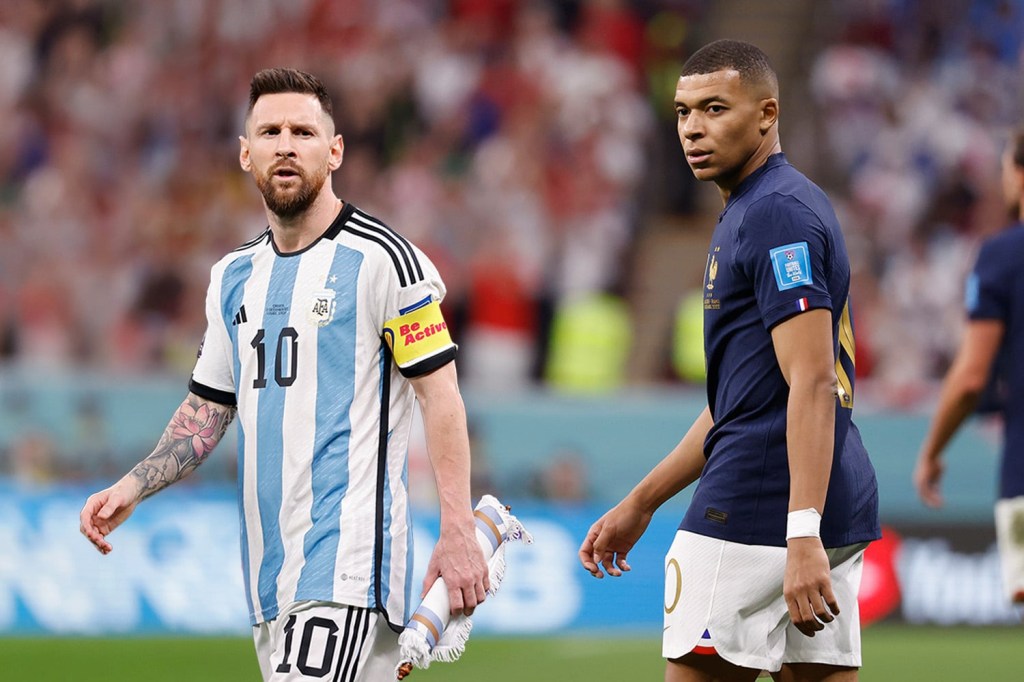This has arguably been the most controversial, chaotic World Cup in the 92-year history of the international tournament — but also one of the most epic from a competitive standpoint.
There was the unprecedented selection of Qatar as the host, the equally unprecedented decision to hold it in the fall months, and the $300 billion Qatar reportedly spent.
Thousands of migrant workers died building and maintaining the stadiums. Protests in support of LGBTQ rights were initially stifled, kicking off a series of reactive protests. Beer was banned from venues days before the tournament began. There were also several feuds between competing nations.
The mountain of negative press may not have been worth it for the Persian Gulf nation — but the competition itself cannot have played out any better.
- The group stage saw two of the biggest upsets in World Cup history: Saudi Arabia’s 2-1 victory over Argentina and Japan’s 2-1 victory over Germany.
- The quarterfinals featured four thrillers, two decided by penalty kicks.
- Morocco became the first African nation to advance to the semifinals.
The USMNT’s progression to the knockout stage validated an eight-year layoff for fans — and drove record viewership for broadcaster Fox.
“With the U.S. back in the World Cup, we expected a healthy increase in viewership, and we’re actually a little bit ahead of our own expectations,” Fox Sports’ Head of Strategy & Analytics Michael Mulvihill wrote in an email to Front Office Sports.
“Across English and Spanish coverage, Americans are going to spend more time watching the World Cup than they did watching March Madness.”
And at the end of a tournament with twists and turns befitting a Hollywood movie script, the 2022 Final delivered an epic matchup.
- On one side is Argentina, which has won the title twice — but never with Lionel Messi, who is one World Cup trophy from cementing his status as the GOAT.
- On the other side is France, the 1998 and 2018 champions, which — behind arguably the world’s current best player, Kylian Mbappe — is looking to become the first repeat World Cup winner since 1962.
“There aren’t many better narratives in sports than a matchup of generational talents competing for a championship,” said Mulvihill. “We couldn’t have asked for a better matchup, and I suspect broadcasters all over the world feel the same way.”
Messi’s Best Shot
When Lionel Messi leads his team onto the pitch at Lusail Stadium, it will be his 26th World Cup match, a FIFA record for a male player.
The 35-year-old has built his legend mostly through his monumental club achievements at Barcelona — but at the national level, he’s also been the most prolific player in Argentina’s history.
- He leads Argentina in appearances (171) and goals (96).
- He’s the youngest Argentine to score at a World Cup, netting just before his 19th birthday against Serbia and Montenegro in 2006.
- In 2022, he has already set the Argentine record for goals in a calendar year (16).
And while Messi is the nation’s leading scorer in Qatar with five goals and three assists, Argentina has gotten this far with support from a core of talented youngsters.
Julian Alvarez — the 22-year-old forward who transferred to Manchester City for €21.4 million ($22.7M) in January — has found the back of the net four times, including twice in the semifinal win over Croatia.
Defense was a concern for the squad coming into Qatar, but 24-year-old centerback Cristian Romero has led a back line that has allowed just nine shots on goal all tournament. Romero permanently transferred to Tottenham Hotspur for €50 million ($53M) in August.
And then there’s Argentina’s biggest asset not named Messi, who has been quiet in the leadup to the final.
Lautaro Martinez — worth a team-high €75 million ($79.5M) per Transfermakt’s market value rankings — has been held without a goal or assist in the five matches he’s played.
If he can break his slump, the 25-year-old Inter Milan striker could prove to be a difference-maker against France.
The Price to Repeat
When you have a generational talent like Kylian Mbappe, winning becomes a bit easier.
Fresh off scoring a competition-best seven goals in the Champions League group stage, the 23-year-old superstar leads France with five goals in this World Cup.
Mbappe holds the distinction of the second-most expensive transfer of all time — behind Neymar’s €222 million ($235.2M) — when he moved to Paris Saint-Germain for €180 million ($190.7M) in 2017.
He’s currently the second-most valuable (€160M/$169.5M) player on Transfermarkt behind Manchester City’s Erling Haaland (€170M/$180.1M).
And Mbappe is surrounded by a deep and talented France squad.
- Winger Ousmane Dembele transferred to Barcelona in 2017 for €140M ($148.4M) — the third-most expensive transfer ever.
- Forward Antoine Griezmann transferred to Barcelona in 2019 for €120M ($127.1M) — the sixth-most expensive transfer ever.
France is also getting contributions from young upstarts and reliable veterans alike.
Aurelien Tchouameni scored a sensational goal in France’s 2-1 quarterfinal win over England; the 22-year-old’s move to Real Madrid for €80 million was the fourth-most expensive transfer of this season.
Olivier Giroud, the veteran striker for AC Milan, has contributed four goals, second-most on the team — but the 36-year-old’s status for the match is in doubt after he picked up a knee knock in training.
Legacies on the Line
Messi and Mbappe actually have a lot in common.
The Argentine legend and the French phenom come into the match tied for the Golden Boot, awarded to the World Cup’s top goalscorer (Messi holds the tiebreaker on assists, 3-2).
They’re also teammates at PSG — which is (most likely coincidentally) owned by Qatar Sports Investments, a subsidiary of Qatar’s sovereign wealth fund.
But any pleasantries will have to wait until they return to Paris: Each has a massive legacy to play for.
- A World Cup win for Messi would surely place him above Cristiano Ronaldo in their celebrated rivalry, which began when they both entered the world stage in the early 2000s.
- If Mbappe is able to lead France to rare back-to-back World Cups, he would be a national sports legend before the age of 24.
The one who brings home the trophy will doubtless be mentioned alongside the likes of Pele and Diego Maradona in the conversation of the best player in history — and a win for Messi could even put him above those two icons.




